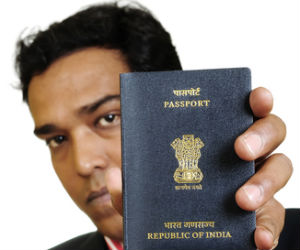Understanding Resident Indian, Not Ordinarily Resident under the IT Act

Resident Indian:
An individual is said to be resident in India in any previous year, if he-
- Is in India in that year for a period or periods amounting in all to one hundred and eighty-two days or more ; or
- Having within the four years preceding that year been in India for a period or periods amounting in all to three hundred and sixty-five days or more, is in India for a period or periods amounting in all to sixty days or more in that year.
A Hindu undivided family, firm or other association of persons is said to be resident in India in any previous year in every case except where during that year the control and management of its affairs is situated wholly outside India.
Not Ordinarily Resident:
A person is said to be "not ordinarily resident" in India in any previous year if such person is-
- An individual who has been a non-resident in India in nine out of the ten previous years preceding that year, or has during the seven previous years preceding that year been in India for a period of, or periods amounting in all to, seven hundred and twenty-nine days or less; or
- A Hindu undivided family whose manager has been a non-resident in India in nine out of the ten previous years preceding that year, or has during the seven previous years preceding that year been in India for a period of, or periods amounting in all to, seven hundred and twenty-nine days or less.
Non Resident Indian:
A Non Resident Indian (NRI) as per India's Foreign Exchange Management Act 1999 (FEMA), is an Indian citizen or Foreign National of Indian Origin resident outside India for purposes of employment, carrying on business or vocation in circumstances as would indicate an intention to stay outside India for an indefinite period.An individual will also be considered NRI if his stay in India is less than 182 days during the preceding financial year.
Person of Indian Origin
A person who is not a citizen of India is deemed to be of Indian origin if he is not a citizen of Pakistan or Bangladesh and if
• He at any time held an Indian passport; or
• He or either of his parents or any of his grandparents was a citizen of India by virtue of the Constitution of India or Citizenship Act, 1955.
A spouse (not being a citizen of Pakistan or Bangladesh) of an Indian citizen or of a Person of Indian Origin is also treated as a Person of Indian Origin for the purpose of NRI deposits if the accounts are held jointly with the NRI/PIO spouse. PIOs are extended the same facilities for bank account maintenance in India as NRIs and are also, for such purposes, called by the generic name as NRIs.
GoodReturns.in































